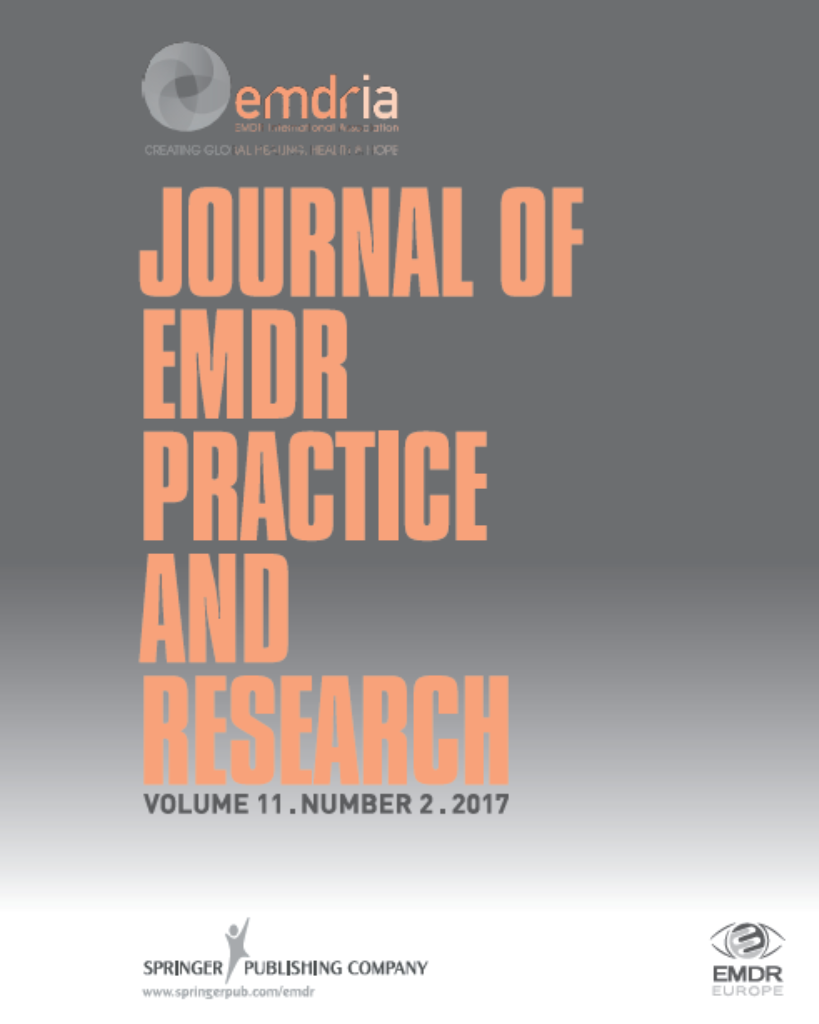EMDR Therapy for Posttraumatic Stress Disorder Symptoms in Adult Inpatient Mental Health Settings: A Systematic Review
Systematic review evaluating studies investigating the impact of EMDR on symptoms of PTSD within adult inpatient mental health settings.
“Most research evaluating eye movement desensitization and reprocessing (EMDR) therapy has taken place in community settings, leaving the impact for service users within inpatient environments less clear. This systematic review sought to identify, summarize, and critically evaluate studies that investigated the impact of EMDR on symptoms of posttraumatic stress disorder (PTSD) within adult inpatient mental health settings. Seven databases were systematically searched to identify published and unpublished articles eligible for inclusion. Eleven studies, published between 1995 and 2020, were included within this review. All studies showed that EMDR improved PTSD symptoms, across a variety of study populations. However, these findings are limited by the (a) preponderance of case study designs (preventing causal attribution); (b) provision of synchronous treatments; (c) poor methodological quality; and (d) high heterogeneity across studies. Prior research has shown EMDR’s effectiveness and safety for vulnerable populations. While the evidence is beginning to support its use with those experiencing PTSD symptoms within adult inpatient settings, it is premature to strongly recommend it as a routine intervention. Future research within this area is recommended.”
—Description from publisher
Article Access
Open Access
Phillips, R., Pinto, C., McSherry, P., & Maguire, T. (2022). EMDR Therapy for Posttraumatic Stress Disorder Symptoms in Adult Inpatient Mental Health Settings: A Systematic Review. Journal of EMDR Practice and Research, 16(1), 4–24. https://doi.org/10.1891/EMDR-D-21-00022
About the Journal
The Journal of EMDR Practice and Research is a peer-reviewed publication devoted to integrative, state-of-the-art papers about Eye Movement Desensitization and Reprocessing. It is a broadly conceived interdisciplinary journal that stimulates and communicates research and theory about EMDR, and their application to clinical practice. The Journal of EMDR Practice and Research is the Official Publication of the EMDR International Association.
Date
March 1, 2022
Creator(s)
Rebecca Phillips, Cathryn Pinto, Pamela McSherry
Contributor(s)
Tess Maguire
Topics
PTSD
Practice & Methods
Inpatient/Residential
Extent
21 pages
Publisher
Springer Publishing Company
Rights
Copyright © 2022 EMDR International Association
APA Citation
Phillips, R., Pinto, C., McSherry, P., & Maguire, T. (2022). EMDR Therapy for Posttraumatic Stress Disorder Symptoms in Adult Inpatient Mental Health Settings: A Systematic Review. Journal of EMDR Practice and Research, 16(1), 4–24. https://doi.org/10.1891/EMDR-D-21-00022
Series
16
Installment
1
Audience
EMDR Therapists
Language
English
Content Type
Meta-analyses/Systematic Reviews
Original Source
Journal of EMDR Practice and Research
Access Type
Open Access





